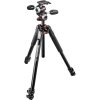Hi all,
Just out of curiosity, does a good tripod really matters in general day to day usage? I mean even in Singapore? I'd like to seek some expert advice or rather opinion for the following:
Tripods for
1) Indoor shoot (Commercial interior)
2) Night Photography (Local and oversea, like milkyway photograph?)
I personally don't do much night photography, but I feel that a basic tripod under general circumstances does the job, if there isnt much wind, or earth isn't shaking.
Just out of curiosity, does a good tripod really matters in general day to day usage? I mean even in Singapore? I'd like to seek some expert advice or rather opinion for the following:
Tripods for
1) Indoor shoot (Commercial interior)
2) Night Photography (Local and oversea, like milkyway photograph?)
I personally don't do much night photography, but I feel that a basic tripod under general circumstances does the job, if there isnt much wind, or earth isn't shaking.



